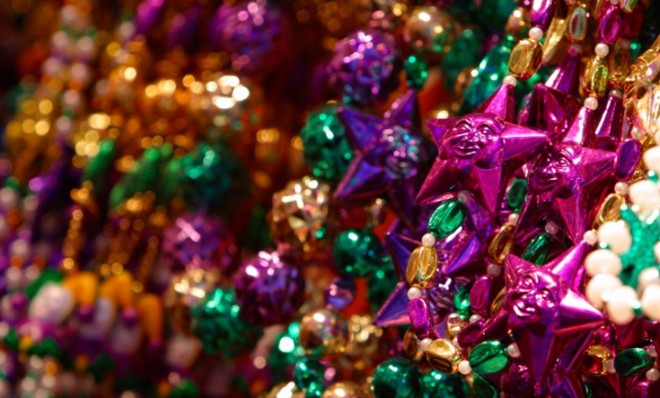Iko iko wan dey: What do the words to that Mardi Gras song mean?
A look at the origins of Mardi Gras' most popular song


A free daily email with the biggest news stories of the day – and the best features from TheWeek.com
You are now subscribed
Your newsletter sign-up was successful

If you've only heard one Mardi Gras song, it's probably "Iko Iko," the hit recorded by the Dixie Cups in 1965. An earlier version (titled "Jock-a-mo") by James "Sugar Boy" Crawford came out in 1953, and many artists, from Dr. John to the Grateful Dead to Cyndi Lauper, have covered it. It's a playful, taunting chant, that comes from the traditional call-and-response challenges of two battling tribes at a Mardi Gras parade. The chorus goes something like this:
Hey now! Hey now!Iko iko wan deyJock-a-mo fi no wan an deyJock-a-mo fi na ney.
Everyone has recorded it a little differently, but no one who recorded it knew what it meant. Crawford had heard the phrases at parade battles, and the Dixie Cups said they had heard their grandmother sing it.
There are as many guesses about the meaning of this song as there are versions of it: Jock-a-mo means "brother John," or "jokester," or "Giacomo;" Jock-a-mo fin a ney means "kiss my ass," or "John is dead"; Iko means "I go," or "pay attention," or "gold," or "hiking around"; the words come from French, or Yoruba, or Italian...
The Week
Escape your echo chamber. Get the facts behind the news, plus analysis from multiple perspectives.

Sign up for The Week's Free Newsletters
From our morning news briefing to a weekly Good News Newsletter, get the best of The Week delivered directly to your inbox.
From our morning news briefing to a weekly Good News Newsletter, get the best of The Week delivered directly to your inbox.
Reporter Drew Hinshaw decided to ask some experts about the origin of the song after he noticed the similarity between the Iko refrain and a stirring call-and-response chant he heard at a parade in Ghana: "Iko Iko! Aayé!" In this 2009 article in the New Orleans music magazine Offbeat, he recounts how he showed the lyrics to a local linguistics professor who thought they definitely came from a West African language. Back in the U.S., a professor of Creole Studies thought it came from a mixture of Yoruba and French Creole, and proposed the following breakdown:
Enòn, Enòn! Code Language!Aiku, Aiku nde. God is watching.Jacouman Fi na Jacouman causes itida-n-de We will be emancipated.Jacouman Fi na dé Jacouman urges it; we will wait.
Meanwhile, Wikipedia says some mysterious, unnamed "creole lingua specialists" endorse the following French-based Creole interpretation:
Ena! Ena! Hey now! Hey now!Akout, Akout an deye Listen, listen at the backChaque amoor fi nou wa na né All the love made our king be bornChaque amoor fi na né All the love made our king be born
Another theory making the rounds of various folk music message boards is that the "jock-a-mo" part comes from a Native American language where "chokma finha" means "very good." This at least matches up with what Crawford said about his original 1953 recording: He sang "chock-a-mo," but it was misspelled on the record label as "jock-a-mo."
We will probably never be able to pin down the origin of the words or what they once meant. But it may well be that even from the very first chanting of the phrases, the Africans, Native Americans, French, and English that made up the great language/culture mélange of New Orleans all understood it in their own way. And still had good old time anyway.
A free daily email with the biggest news stories of the day – and the best features from TheWeek.com
More from Mental Floss...
* 7 carnivals around the world
Arika Okrent is editor-at-large at TheWeek.com and a frequent contributor to Mental Floss. She is the author of In the Land of Invented Languages, a history of the attempt to build a better language. She holds a doctorate in linguistics and a first-level certification in Klingon. Follow her on Twitter.
-
 What is the endgame in the DHS shutdown?
What is the endgame in the DHS shutdown?Today’s Big Question Democrats want to rein in ICE’s immigration crackdown
-
 ‘Poor time management isn’t just an inconvenience’
‘Poor time management isn’t just an inconvenience’Instant Opinion Opinion, comment and editorials of the day
-
 Bad Bunny’s Super Bowl: A win for unity
Bad Bunny’s Super Bowl: A win for unityFeature The global superstar's halftime show was a celebration for everyone to enjoy
